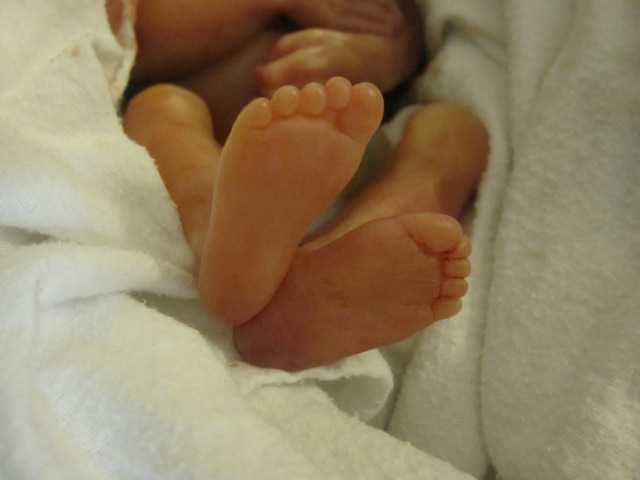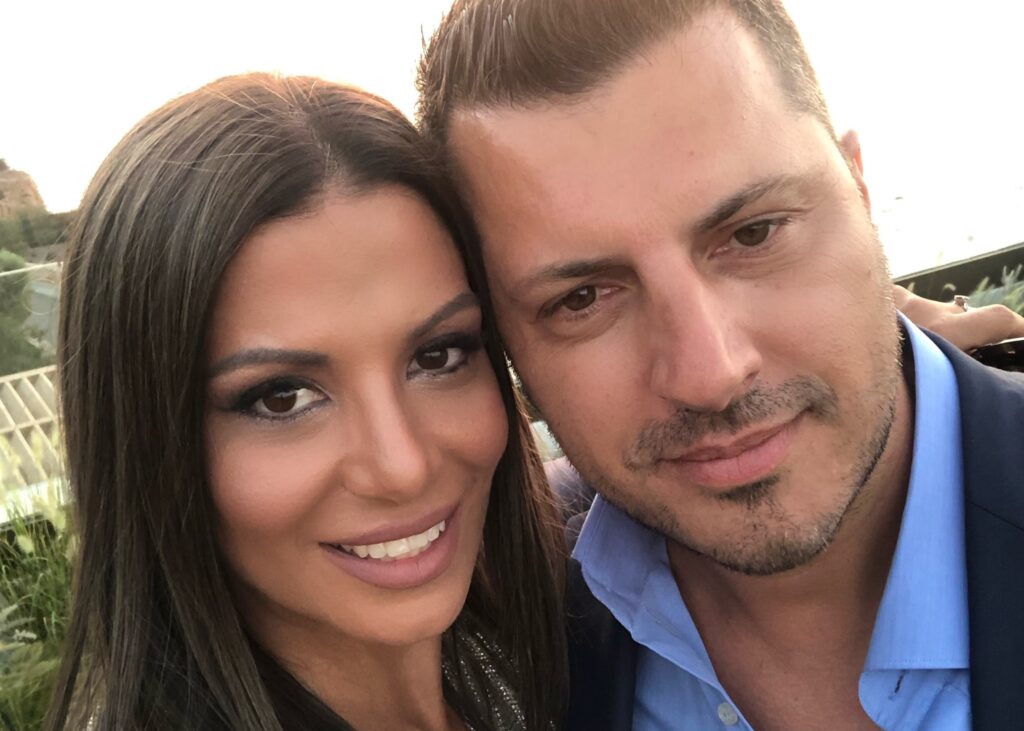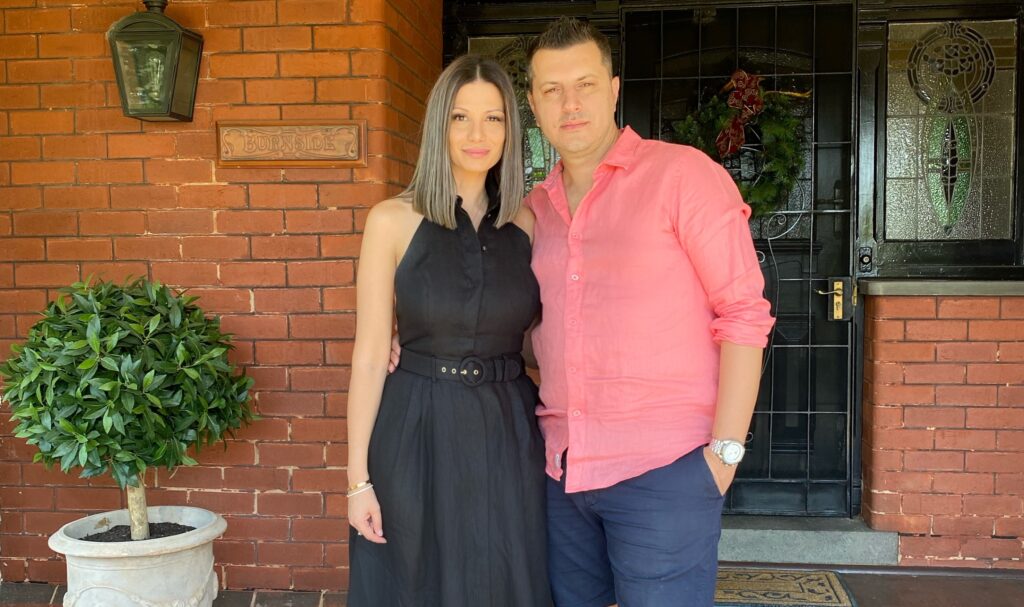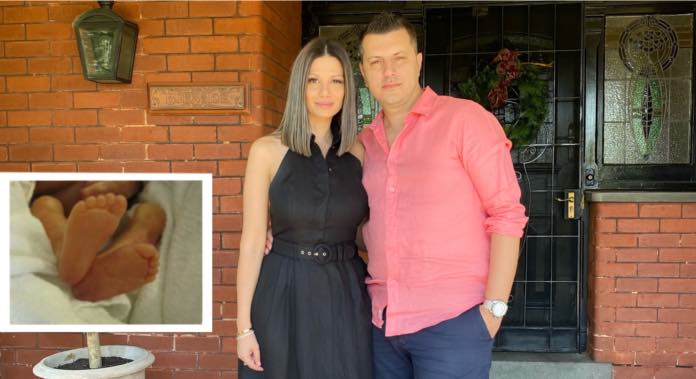“There’s no way out. There’s no way to fix it. It’s just horrific to go through the labour process and… it’s for nothing really. It’s for nothing and it’s just going to cause you more pain,” begins 33-year-old Rea Liapis, with tears in her eyes.
She’s referring to how at 25 weeks pregnant she went into an early labour with the ominous words of her obstetrician ringing in her ears: “It’s likely your child will not survive this.”
She was right.
On March 3, 2012, Rea, who was 26 years old at the time, gave birth to a stillborn baby girl named Mia. The labour, she says, was ‘traumatic’ and something she and her husband Pat ‘haven’t been able to get over completely.’
“When Mia was born, she weighed only 600 grams. My doctor wrapped her up, put her on me and we held her… They were initially going to leave her in our room, but I was just so exhausted by the end of it, so they took her away,” Rea tells The Greek Herald exclusively.
“But when they brought her back the next morning, nicely wrapped and dressed in her little outfit, that was even more traumatic because she was so cold as they had her in the morgue overnight. So that in itself was a bit difficult.”

“Guilt comes from every angle”:
Heartbreaking stories such as Rea’s are sadly not uncommon in Australia. According to the Stillbirth Foundation Australia, a stillbirth, defined as the loss of a foetus from 20 weeks into the pregnancy, occurs six times a day in Australia. In fact, one in 135 births will be stillborn and the cause of many of these deaths will never be known.
Rea and her family belong to this category. Having never done a full autopsy on Mia, the cause of her death remains a mystery. Something which Rea says made her question everything she did during her pregnancy.
“The guilt is a really funny thing because it comes from every angle. It’s ‘did I do something wrong?’ or ‘what if I had been on bed rest?’,” Rea says sadly.
“I had bleeding from 13 weeks and it was nothing major, but the guilt was there as well because I thought, ‘if I had stayed in the hospital from the beginning, would anything have been different?’”
Add to this the internal conflict Rea and her husband felt when they discovered they were pregnant with their second daughter, Zara, within three months of the stillbirth. They later had a son, Sebastian, as well.

“It was extremely difficult to decide to go through it again because we had no answers. We were so scared. However, we actually became pregnant quite quickly a second time with Zara and my doctor was looking after me a lot more, checking in on me a lot and that created its own guilt,” Rea explains.
“Once Zara came along, and I’m so happy because I have this gorgeous, beautiful little girl, but when I think about Mia I do get upset because it’s not something that ever disappears.
“And if I think, ‘oh I wish Mia was here,’ the guilt comes back where it’s like, ‘yes but if you had her here, you wouldn’t have Zara.’ So then you feel guilty for missing her because had everything gone perfectly fine, I wouldn’t have Zara. So yeah, mum guilt is a funny thing.”
“Making it disappear doesn’t help”:
What’s not funny is the fact that stillbirth is still largely misunderstood and a taboo topic in today’s society.
In fact, Rea recognises that discussions around the issue have improved from the past where, according to a conversation she had with her grandfather, “no one spoke about it.”
“He said to me, ‘one day someone was pregnant and one day they weren’t. That was it. You just sort of buried the body and moved on. There were no names, nothing.’ So I think we’ve come a long way,” Rea says.
However, she adds that more still needs to be done because at the end of the day, acknowledging her stillbirth, and having others do the same, was the first step in her healing process.

“We had a proper burial and I think that helped me heal because it was more about understanding that she is my daughter and I didn’t want anyone to just fob it off as a miscarriage, which I think a lot of people do,” Rea explains.
“We’ve got some beautiful photos as well… and seeing them, you’re like ‘wow that’s a baby, they’re baby toes.’ So making her real and making people understand that it wasn’t just nothing was really instrumental in helping me feel better about the whole situation.”
And of course, having the wonderful support of her close family and friends also played an important role in mending her broken heart.
“If you’re going through this, it’s just important to have people around you and to understand that there’s nothing wrong with you. There’s nothing wrong with your child and there’s absolutely nothing wrong with feeling like they are your child because they are. Making it disappear doesn’t help,” Rea says.
Wise words from a woman who has clearly experienced her fair share of trauma which many of us couldn’t even begin to comprehend.

